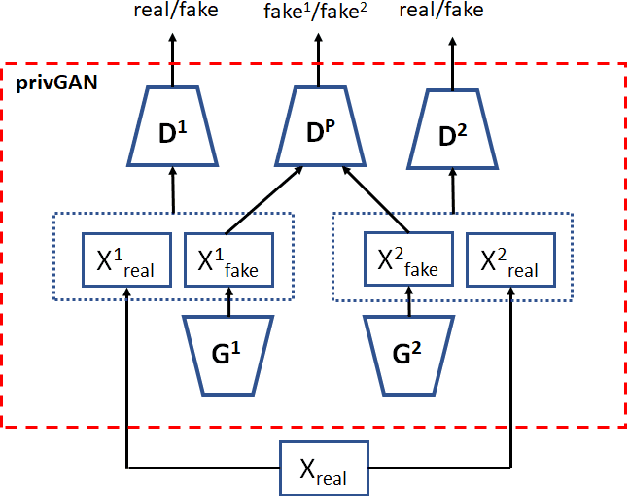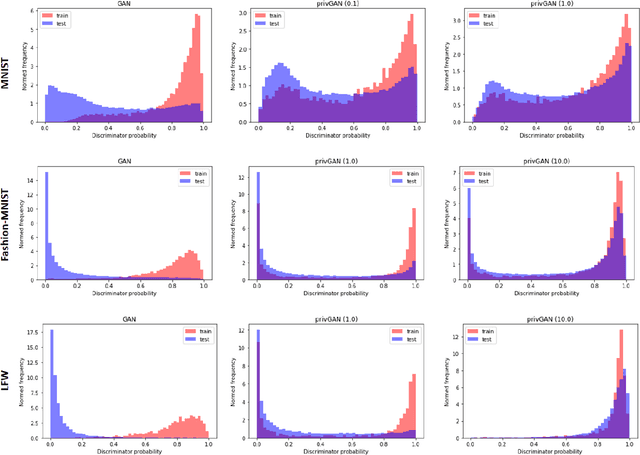Protecting GANs against privacy attacks by preventing overfitting
Paper and Code
Jan 03, 2020



Generative Adversarial Networks (GANs) have made releasing of synthetic images a viable approach to share data without releasing the original dataset. It has been shown that such synthetic data can be used for a variety of downstream tasks such as training classifiers that would otherwise require the original dataset to be shared. However, recent work has shown that the GAN models and their synthetically generated data can be used to infer the training set membership by an adversary who has access to the entire dataset and some auxiliary information. Here we develop a new GAN architecture (privGAN) which provides protection against this mode of attack while leading to negligible loss in downstream performances. Our architecture explicitly prevents overfitting to the training set thereby providing implicit protection against white-box attacks. The main contributions of this paper are: i) we propose a novel GAN architecture that can generate synthetic data in a privacy preserving manner and demonstrate the effectiveness of our model against white--box attacks on several benchmark datasets, ii) we provide a theoretical understanding of the optimal solution of the GAN loss function, iii) we demonstrate on two common benchmark datasets that synthetic images generated by privGAN lead to negligible loss in downstream performance when compared against non--private GANs. While we have focosued on benchmarking privGAN exclusively of image datasets, the architecture of privGAN is not exclusive to image datasets and can be easily extended to other types of datasets.
 Add to Chrome
Add to Chrome Add to Firefox
Add to Firefox Add to Edge
Add to Edge